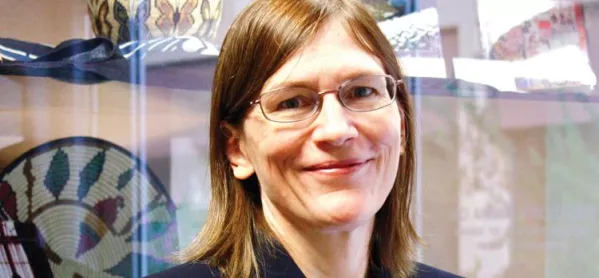The education research world must urgently get its house in order because few results are replicable and many researchers are not even using the scientific method, a top academic has said.
Professor Barbara Oakley said that many education academics refuse to share their research data and instead ask for their findings to be taken on “trust”.
Professor Oakley is a professor of engineering at Oakland University in America. She launched the world’s most popular Mooc (massive open online course) on the topic of learning how to learn, and has written extensively about the connections between neuroscience and education.
Speaking in London on Friday, Professor Oakley voiced her concerns about the “replicability crisis”, which she said was a “huge problem” affecting physical and social sciences.
“It costs millions to do some of these studies - and then they find that somebody else has tried to repeat it and they don’t get the same results,” she said. “In other words, that first finding in all probability was in error.”
The replicability crisis is a “huge problem in hard science”, she said, but is even more acute in fields such as psychology, which “has a terrible, terrible problem”.
“[In] social psychology - they found that 30 per cent of all research findings can be replicated. So that tells you that if a social psychologist comes up and tells you ‘here’s what this finding is’, you can be pretty sure they’re wrong.”
But while she commended psychology for facing up to these problems, Professor Oakley accused education of failing to do so.
“I have to give a lot of credit to psychology as a discipline because they’re putting their house in order. They’re publically admitting they have a problem and they’re doing something about it. Education is not.”
She continued: “There is a real challenge. Few results are replicable, many major researchers… do not do research that is founded on the scientific method.
“They won’t make their original data available, even though it must be available if it’s been done by the scientific method. They will be from major research institutions and they’ll say ‘trust me’. So there is truly a problem in education.”
Professor Oakley is not the first person to warn about the replicability crisis in education.
The situation is compounded by the fact that researchers are rewarded for original research, and therefore have little incentive to attempt or publish replication exercises.
Professor Larry Hedges, chair of the department of statistics at Northwestern University in America and winner of the $4 million Yidan Prize for “outstanding accomplishments” in education, is using half of the money he received from the prize to tackle the issue.
He plans to create ways to evaluate whether tests actually do replicate each other and how to design studies to allow replication.




